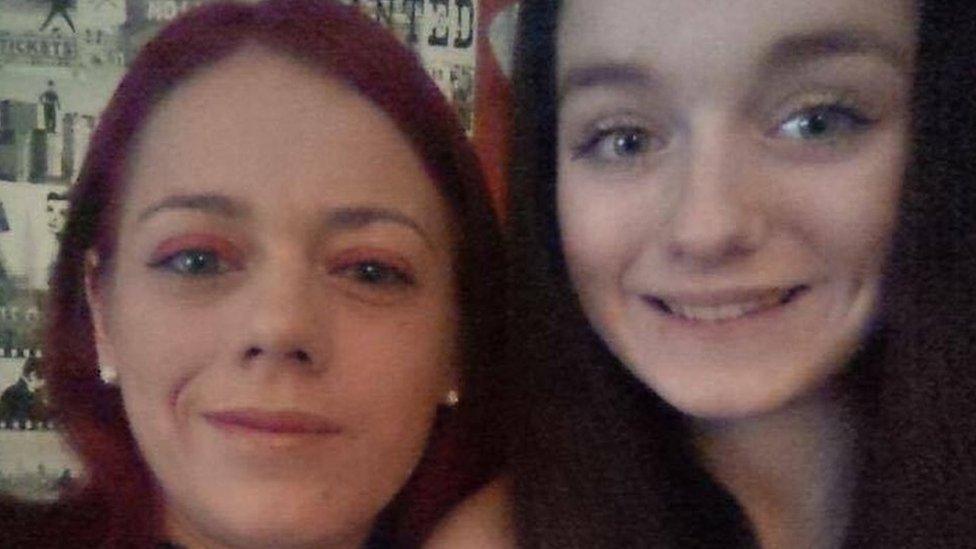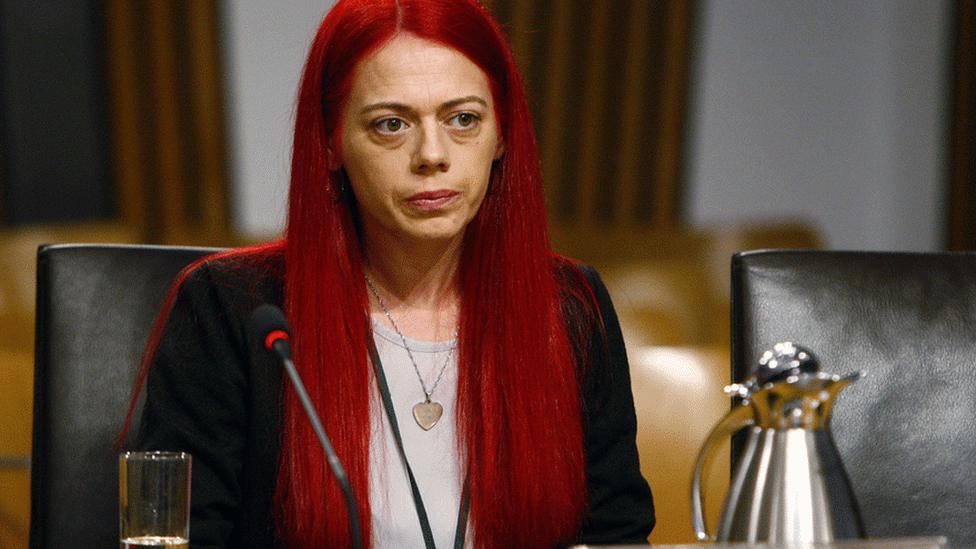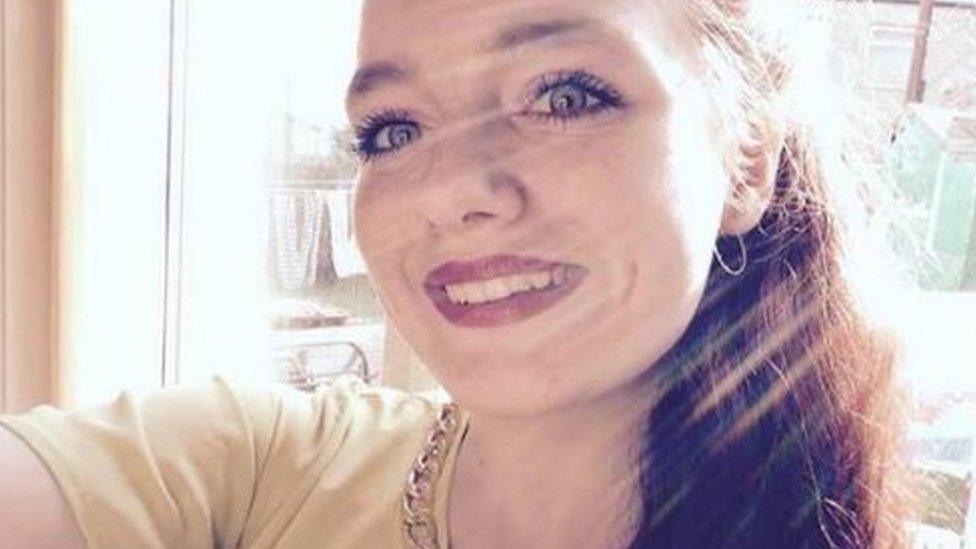Mother's mental health bid hits Holyrood milestone
- Published

Annette McKenzie's daughter Britney took her own life after suffering online bullying
A mother's bid to change mental health treatment for teenagers has reached a milestone at Holyrood.
MSPs want information on whether children are prescribed anti-depressants as "the first port of call or the last port of call".
It comes exactly a year after Annette McKenzie told a committee prescribing the drugs to under-18s should not happen without parental consent.
Her 16-year-old daughter Britney took a fatal overdose in 2016.
Holyrood's Public Petitions Committee, external made the plea after being contacted by the mother of a Britney Mazzoncini.
The Glasgow teenager took her own life just over two weeks after being prescribed tablets for anxiety.
Last January, Ms McKenzie told the committee how her daughter, who suffered from depression and anxiety and was having suicidal impulses, was prescribed a month's supply of medication in June 2016.
Sixteen days later, she took a fatal overdose.
'Last port of call'
Ms McKenzie, from Glasgow, wants the law to be changed so under-18s cannot be prescribed medication to treat mental health concerns without parental consent.
The rise in prescriptions for anti-depressants - including more prescriptions issued to children and young people - has been welcomed by the Scottish government as it shows more people are coming forward for help.
Committee convener Johann Lamont said: "It's been said that young people shouldn't be prescribed anti-depressants at a first visit until everything else has been exhausted."
Dr John Mitchell, principal medical officer and psychiatric adviser to the Scottish government, told her there were no figures to show when young people were prescribed medication.
As a result, Ms Lamont said: "We don't know whether it is the first port of call or the last port of call."
She added: "We know that in this case the young person was prescribed tablets on the very first visit.
"There is increased prescribing of anti-depressant drugs, we do not know whether that is at the end of a long process or the beginning of a long process."
Dr Mitchell said there was "evidence from a variety of sources" showing that the prescribing of anti-depressants "is appropriate".

Britney Mazzoncini took an overdose after being prescribed a month's supply of anxiety medication
Conservative MSP Michelle Ballantyne raised concerns about the length of time GPs may have to speak to a young person before giving them medication.
She stated: "The time they have to see a patient and to draw conclusions is about 10 minutes per visit.
"Even if they saw that person four times you're talking about less than an hour to make that judgement call, and a psychologist or a psychiatrists would not expect to do it in such a short period of time."
'Devastating impact'
Deputy convener Angus MacDonald said: "We do need stats on when or at what stage anti-depressants are prescribed.
"If these stats don't exist, as would seem to be the case, we need to ensure they are available in the future."
Mental health minister Maureen Watt, who was also giving evidence to the committee, expressed her condolences to the family and friends of the dead girl.
She said: "Any death by suicide is a tragedy which has a devastating impact on family, friends and communities."
Ms Watt added the Scottish government, external was currently developing a new draft suicide prevention action plan, which is due to be published in spring 2018.
She stressed: "Young people have a right to confidentiality when seeking medical advice and to make informed decisions about consent.
"To change the current system may deter children and young people from seeking help from doctors and other professionals, and may make them less likely to disclose the full facts about how they are feeling."
If you are feeling emotionally distressed and would like details of organisations which offer advice and support, click here or you can call for free, at any time, to hear recorded information on 0800 066 066.
- Published18 January 2018

- Published19 January 2017
